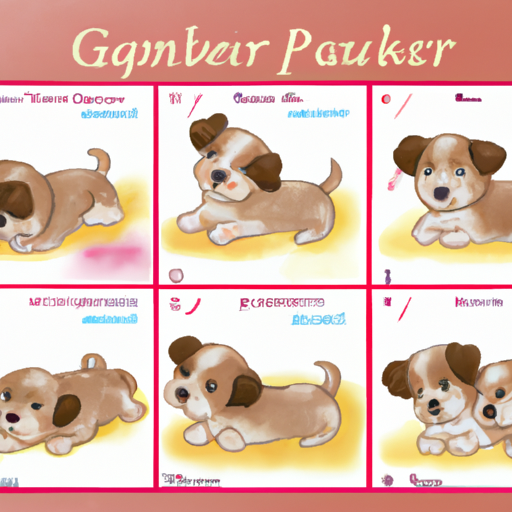If you have recently added a four-legged friend to your family, you may be wondering, “how long does the puppy stage last?” Puppies are adorable, but they also require a lot of attention and patience. Understanding the various stages of puppyhood can help you better care for your new companion and foster a strong, lifelong bond.
1. The Neonatal Stage (0-2 Weeks)
During the neonatal stage, puppies are utterly dependent on their mothers. They can’t see, hear, or regulate their body temperature. During this stage, puppies spend most of their time eating and sleeping.
- Birth Weight: Puppies typically double their weight
- Senses: Puppies are born deaf and blind
- Mobility: Puppies crawl using their front legs
2. The Transitional Stage (2-4 Weeks)
The transitional stage is an extremely rapid period of development. Puppies begin to open their eyes, develop their sense of smell and hearing, and start to walk.
- Senses: Eyes open at 2 weeks, ears at 3 weeks
- Mobility: Puppies start to walk clumsily
- Teeth: First baby teeth appear
3. The Socialization Stage (4-12 Weeks)
The socialization stage is critical for puppies. This is when they begin to learn about their environment, other animals, and humans. It’s essential to expose your puppy to positive experiences during this stage.
- Learning: Puppies begin to learn basic commands
- Socializing: Puppies start to interact with other dogs and humans
- Vaccinations: First round of vaccinations typically occur
4. The Juvenile Stage (3-6 Months)
During the juvenile stage, puppies are similar to human teenagers. They may start to challenge your authority and test their boundaries. This is a critical time for continued socialization and basic obedience training.
- Growth: Puppies experience a rapid growth spurt
- Teething: Puppies lose baby teeth, and adult teeth begin to grow
- Training: Obedience training should be well underway
5. The Adolescent Stage (6-18 Months)
The adolescent stage can be a challenging time for dog owners. Puppies have a lot of energy and may become more independent. However, with patience and consistent training, they will eventually mature into well-behaved adults.
- Physical Maturity: Puppies reach their full size but may still fill out
- Sexual Maturity: Depending on the breed, puppies may start to reach sexual maturity
- Behavior: Puppies may test boundaries and show signs of independence
6. The Adult Stage (18 Months +)
By this stage, most dogs have reached full maturity, although some larger breeds may continue to grow until they are two years old. It’s important to continue your dog’s training and socialization during this stage.
| Stage | Age | Main Developmental Features |
|---|---|---|
| Neonatal | 0-2 weeks | Dependence on mother, development of senses |
| Transitional | 2-4 weeks | Opening of eyes, development of smell and hearing, start of walking |
| Socialization | 4-12 weeks | Learning basic commands, beginning of interaction with others |
| Juvenile | 3-6 months | Rapid growth, teething, beginning of obedience training |
| Adolescent | 6-18 months | Reaching physical and sexual maturity, testing boundaries |
| Adult | 18 months + | Full maturity, continuation of training and socialization |
Frequently Asked Questions (FAQ)
1. When does a puppy become an adult?
Typically, a puppy is considered an adult when they reach 18 months of age. However, some large breeds may not reach full maturity until they are two years old.
2. How can I help my puppy during the teething stage?
Provide your puppy with plenty of chew toys. This will not only soothe their sore gums but also keep them from chewing on your furniture.
3. Is it ever too late to socialize a puppy?
While the socialization stage is a critical period, it’s never too late to socialize a dog. You can and should continue to expose your dog to new experiences throughout their life.
4. My puppy is very energetic. When will they calm down?
Most puppies start to calm down as they move into adulthood. However, all dogs are different, and some breeds are naturally more energetic than others.
Remember, each puppy is unique and may develop at a slightly different rate. So, while the stages outlined provide a general guide, don’t be alarmed if your puppy is a bit ahead or behind. The most important thing is to enjoy every moment of your puppy’s growth and development. After all, they grow up so fast!



